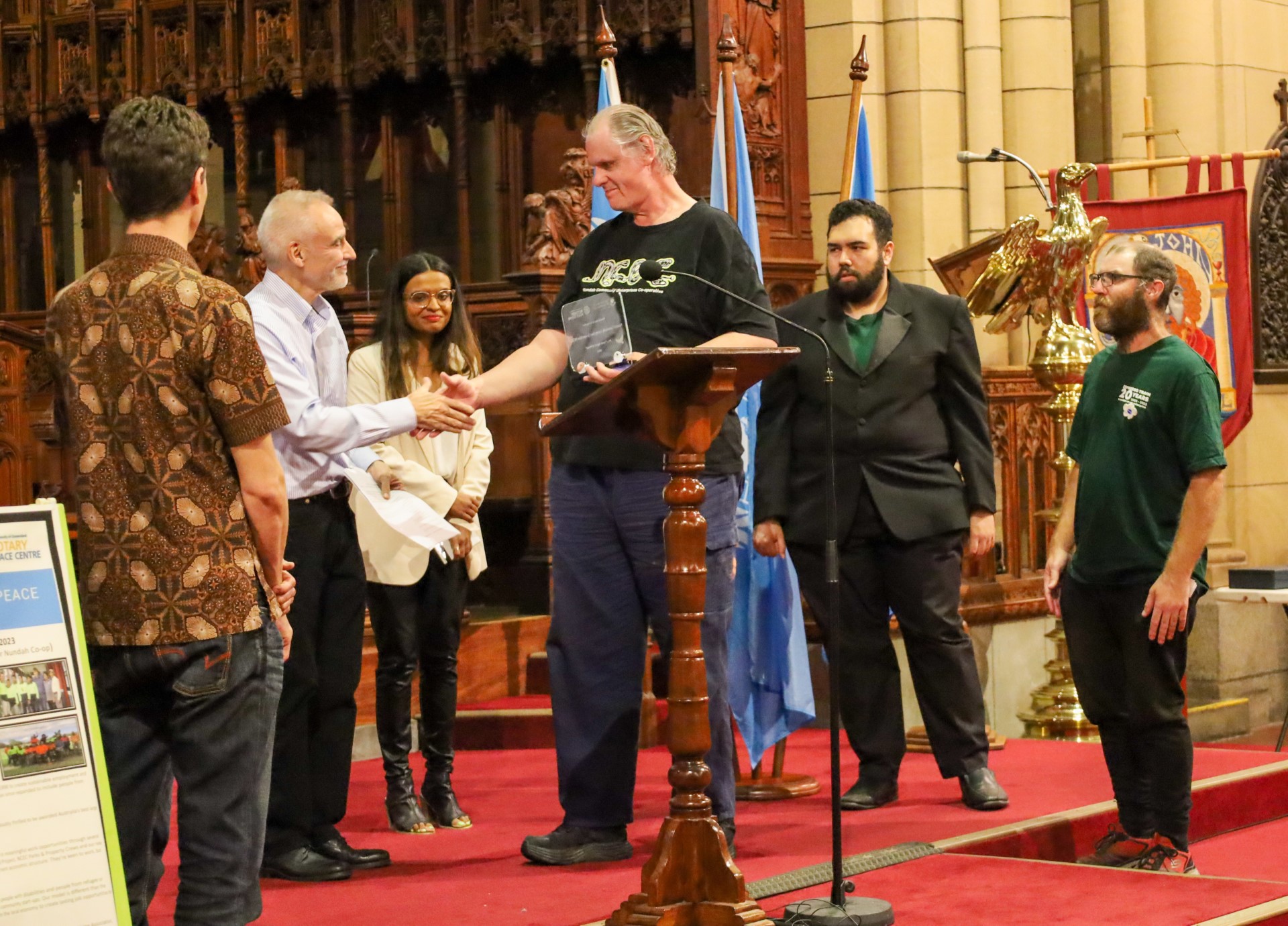2023 Local Agents of Peace Nundah Community Enterprises Co-operative (NCEC or Nundah Co-op)

Nundah Community Enterprises Co-operative (NCEC or Nundah Co-op) was formed in 1998 to create sustainable employment and training opportunities for people with cognitive and/or psycho-social disabilities and has since expanded to include people from refugee and asylum seeker backgrounds.
NCEC was thrilled to be named Australia’s best small social enterprise in 2015 and doubly thrilled to be awarded Australia’s best largesocial enterprise in 2020!
Supporting People With Meaningful Work
We are a not-for-profit organisation that currently engages more than 50 people in meaningful work opportunities through several small enterprises: Espresso Train Café & Catering, Marhaba Cafe, The Good Food Project, NCEC Parks & Property Crews and our new Youth Co-op. Many of our members have struggled to find their place in the current economic structure. They’re keen to work, but due to the pace they learn at, employers are often unwilling to support them.
 Lasting Impact
Lasting Impact
NCEC creates more than 11,000 hours of long-term employment annually to people with disabilities and people from refugee or asylum seeker background; as well as providing social enterprise training to community start-ups. Our model is different than the
standard ‘flow through model’ of employment training, in that we transform the local economy to create lasting job opportunities for
those who have been excluded.
Our Partners
We would not be here today without key partners and supporters including: Brisbane City Council, Community Living Association, Westpac Foundation, Social Ventures Australia and Foresters Community Finance. Whilst we derive the bulk of our income (approximately 80%) from trade, we would not be in this position without our partners previous offers of business, support and
investment.
Triple Bottom Line
NCEC believes that social and environmental responsibility can align with the financial sustainability of a business. Accordingly the Coop seeks to make business decisions which support an inclusive and just community as well as a sustainable environment. Examples include: our inclusion of disadvantaged workers, sourcing goods (where we can) seasonally and directly from local farmers and an investment in P.V. solar which sees NCEC produce more than 2/3 of the electricity it uses!
